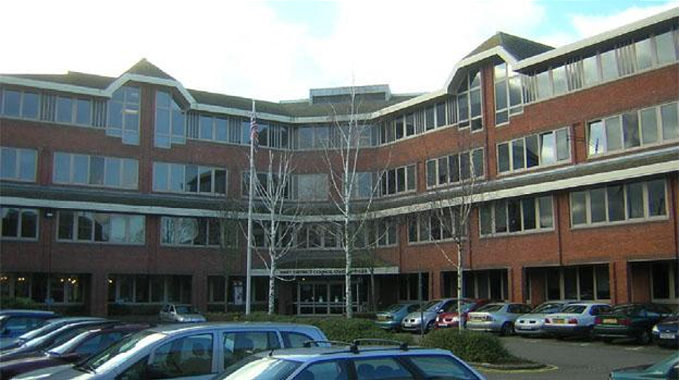It is astonishing that in the year of the 800th anniversary of the signing of the Magna Carta, after censoring questions at the July Council meeting, Hart Council is seeking to impose draconian limits on the questions it can be asked and restrict the petitions it will accept.
It appears that Hart Council has decided that the questions it is being asked about the Local Plan by We Heart Hart and Winchfield Action Group are not appropriate and it is now seeking to simply rule those questions inadmissible. In addition, Hart Council is trying to stop petitions being put to it that it deems unacceptable by saying:
“The Council welcomes questions from the public but more recently it has become clear that the nature, number and length of the questions being put to Council are not appropriate for that forum”
Examples of questions it is now seeking to rule out include questions about:
- the questioner’s own particular circumstances,
- matters which are the subject of legal or enforcement proceedings or an appeal to a tribunal or to a Government Minister or an investigation by the Local Government Ombudsman,
- personal circumstances or conduct of any Officer and Councillor or conditions of service of employees
- activities and aims of a political party or organisation,
- any matter relating to a planning application/decision, including about a development plan document or the community infrastructure levy.
Examples of petitions it wishes to rule inadmissible are petitions about:
- a matter that is already, or is proposed to be, subject to public consultation (statutory or otherwise) to be carried out by the Council,
- activities and aims of a political party or organisation,
- the personal circumstances or conduct of any Officer and Councillor or conditions of service of employees,
- any matter relating to a planning application/decision, including about a development plan document or the community infrastructure levy.
The effect of these restrictions mean that any parish council or campaign group (likely to be deemed political organisations) could not submit questions or petitions about controversial planning applications (e.g. Hop Garden Road, Urnfield, Watery Lane or Grove Farm). Moreover, these limits effectively preclude questions about the Local Plan (as this is a development plan document). Finally, these proposals would also preclude questions being asked and petitions being submitted about suspected wrongdoing of a councillor or officer.
These proposals seem to go against Hart Council’s own Code of Corporate Governance which has as its four key principles:
- Openness: openness is required to ensure stakeholders can have confidence in the decision making and management processes of the Council.
- Inclusiveness: an inclusive approach ensures that all stakeholders and have the opportunity to engage effectively in the decision-making processes and actions of the Council.
- Integrity: is based upon honesty, selflessness and objectivity, and high standards of propriety and probity in the stewardship of public funds and management of the Council’s affairs.
- Accountability: accountability is the process whereby the Council, members and staff are responsible for their decisions and actions regarding all aspects of the Council’s work.
Moreover, these proposals seem to go against the spirit of the legislation that introduced Petition Schemes to Local Government, which sets out the rationale for the legislation (emphasis mine):
7.1 The Local Democracy, Economic Development and Construction Act 2009 had as one of its aims the reinvigoration of local democracy, putting local authorities at the forefront of the drive to reconnect people with public and political decision-making.
7.2 While the Place Survey shows that 80 per cent of people are happy with the area they live in, satisfaction with the way their council runs things is low at 45 per cent. The perception in communities that people can influence decisions that affect their local area was found to be even lower. The duty to respond to petitions was conceived as one mechanism for addressing this. Signing a petition is one way for citizens to express their concerns and priorities to their local authority and the Citizenship Survey shows that petitions are the most popular and recognised form of civic action.
7.4 The Government’s view is that local people are more likely to participate in matters affecting their community if they are sure that their views will be listened to. In particular, they are more likely to organise or sign a petition if they are confident that it will be treated seriously, and that a response is guaranteed. Evidence from a systematic review of petitions reveals that petitions have the potential to empower individuals, to generate activity at the community level, and to impact on decision making. The extent to which petitions are able to realise this potential is largely dependent on the degree to which they are linked to a meaningful response mechanism.
It seems Hart Council only wants to respond to questions from people it agrees with and has no interest at all in accepting petitions that express a view it doesn’t agree with. These proposals are a shameful subversion of local democracy and should be stopped.
The standards committee is due to debate these proposals on Thursday 20 August at Hart Offices at 4pm. Please do go along if you can. If you can’t go along in person, please email [email protected] and the members of the Standards Committee:
[email protected], [email protected], [email protected], [email protected]
to express your opposition to these proposals.

Pingback: Hart District Council's decision to drop controversial proposals covered in Get Hampshire
Pingback: Hart District Council responds to criticisms | We Heart Hart
Pingback: We Heart Hart Petition submitted to Hart District Council | We Heart Hart
Pingback: Call for Hart District Council to work with Winchfield Action Group and We Heart Hart on the Local Plan
Pingback: Hart District Council question and petition proposals covered in local press | We Heart Hart